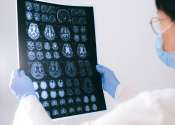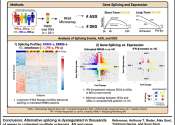New approach for developing cancer vaccines could make immunotherapies more effective in acute myeloid leukemia
Acute myeloid leukemia (AML) is a type of blood cancer that forms in the soft marrow of the bones, typically attacking cells that would otherwise form the key component of the body's immunodefense system, white blood cells.
7 hours ago
0
4









